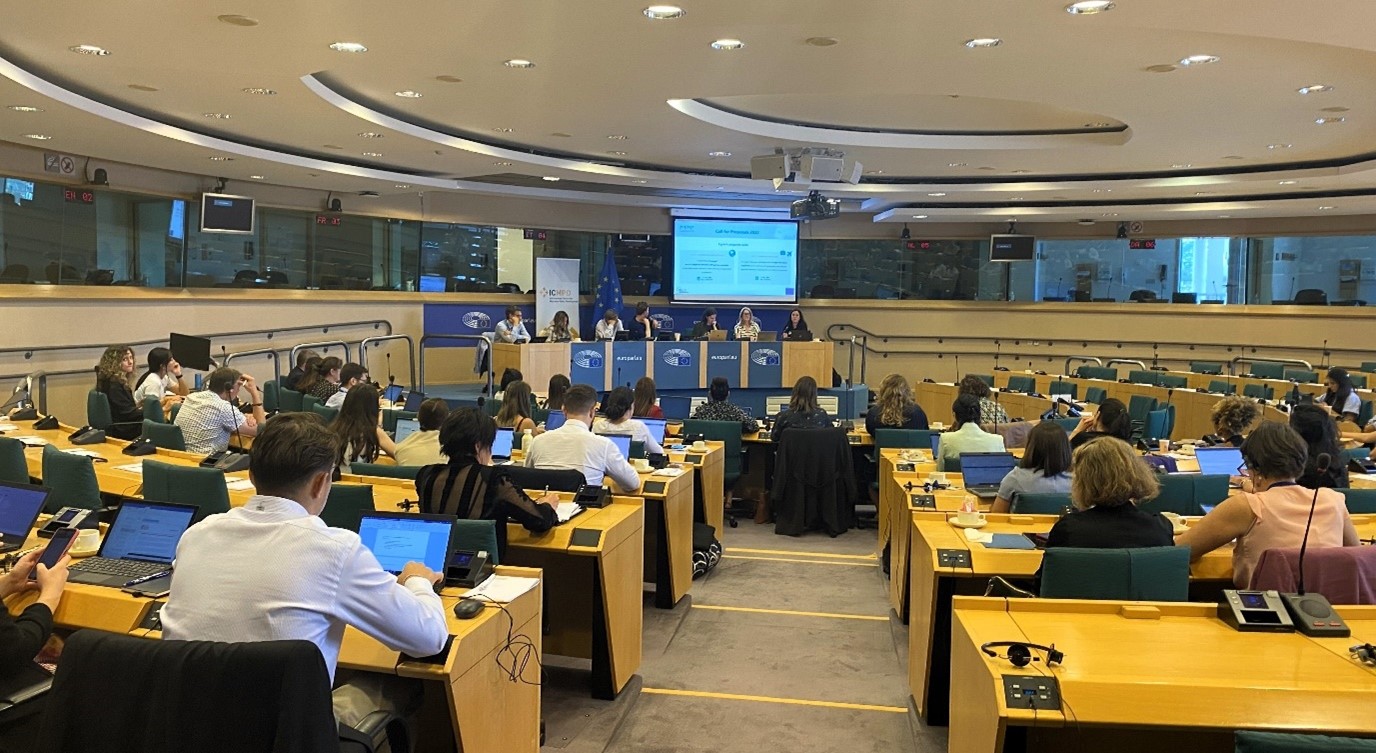On 5th September 2023, the International Centre for Migration Policy Development (ICMPD) and Members of the European Parliament Daiman Boeselager and Javier Moreno Sanchez co-hosted the Event “The Power of Labour Mobility Pilot Projects to Support EU Legal Migration Reform” at the European Parliament. More than 60 participants joined in-person – among them representatives of EU member states and EU institutions, research, and international and non-governmental organisations.
Legal migration policy reforms are significant to the overall labour migration framework of the EU. MEP Boeslager underlined for example that the recast of the long-term residence directive (LTRD) is an integral part of attracting international talent to the EU. MEP Moreno Sanchez concurred and stated how the recast of the single permit directive will also be a crucial factor to facilitate regular migration towards the EU for economic development. Moreover, both MEPs echoed the importance of fully counting all periods of legal residence, including residence periods as beneficiaries of temporary protection. The European Commission’s initiatives such as the Talent Pool and Talent Partnerships are also ongoing in the same vein. Roundtables held with partner countries have been helpful to understand the diverse levels of willingness and openness to labour migration partnerships with the EU. However, these partnerships are not new, since DG HOME funded labour mobility pilot projects have since 2018 been testing various elements of both Single Permit and Long-Term Residence Directives under recast currently . Best practices from these projects prove that the expected benefits of legal and regular migration could be observed in the EU labour market.
Labour mobility pilot projects have been implemented through the ICMPD’s Migration Partnership Facility. Throughout the years projects have matured in their content and scale – in 2018 the MPF began with four pilot projects, which have now grown into a portfolio of 11 ongoing and 4 completed projects.
Digital Explorers, for example, was one of the first-generation pilot projects that already addressed some of the goals of the long-term residence directive and single permit directive recasts: The programme was able to meaningfully fill the labour gap in an EU Member State by bringing 30 young Nigerian ICT talents to Lithuanisa where 18 remained. While the programme covered costs of migration, it was a combination of migrants’ and the project’s effort that found permanent contracts to stay in the EU. In fact, a study on Digital Explorers’ value for money estimates that the added value of the project is 1.7 times higher than its costs invested, showcasing a clear economic benefit for the EU Member States joining labour migration partnerships.
The programme also trained more candidates in Nigeria, creating a means to address the loss of talent (or “brain drain”) in Nigeria and allowing room for a win-win partnership in labour migration. One Lithuanian company that joined the project opened its branch in Abuja, creating local employment and positive spillover effects in Nigeria’s ICT sector. Further, based on the institutional ties created and trust in partners involved, the programme is now moving away from its pilot phase and expanding its target countries to Armenia, Kenya and Nigeria in its second phase – aiming for scale and sustainability.
Several recommendations for practitioners were shared by the project coordinator of Digital Explorers: 1) do your homework – conduct thorough research on the country of origin and destination to perfect the match between them as well as between the candidate and the company; 2) be brave; 3) be flexible – the need to adapt to changes; and 4) produce knowledge from the lessons learned. Building on the project’s experience of scaling to a programme between three Baltic countries and three partner countries, discussions revolved around moving beyond pilots. To avoid the risk of pilots remaining pilots despite the high level of investment, it is important to build aspects of sustainability from the beginning. This includes co-designing mobility schemes with the countries of origin and moving towards change at a systemic level.
Conclusion
Overall, the good level of participation showed how the topic of legal migration is received in the EU policy area in the context of rising interest in EU’s legal migration reform and legal migration pilot projects. The event also provided an important occasion for policy makers, practitioners, and other actors to reconfirm the timeliness and importance of EU’s legal migration reform. It also showed how legal and labour migration pilot projects have evolved towards scalability and sustainability, preparing the grounds for EU initiatives such as the Talent Pool and Talent Partnerships.

